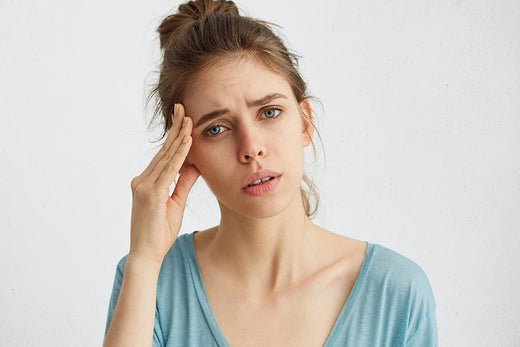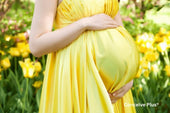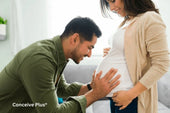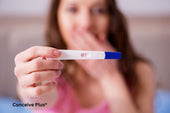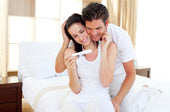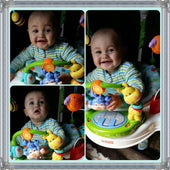What Is the Better Age to Get Pregnant and How Age Impacts Fertility

There’s a lot of debate about the better age to get pregnant, and honestly, it’s not one-size-fits-all. For some, the timing comes naturally when they’re young, and for others, it happens later in life. Both choices come with their own challenges and benefits. But age does matter when it comes to fertility. Knowing how age affects your ability to conceive can help you make the best choice for yourself and your future family [1].
Key Facts
- Age impacts fertility, with egg quantity and quality declining over time, especially after age 30.
- The late teens to late 20s is the peak fertility window for women.
- Early 30s remain a good age to have kids due to a balance of fertility and life readiness.
- After 35, pregnancy risks increase, but many women still have healthy pregnancies.
- Men’s fertility declines after age 40, with reduced sperm quality and motility.
- Proper nutrition and a healthy lifestyle, including nutrients like folic acid and CoQ10, enhance fertility.
- Couples struggling to conceive should seek medical advice after 6–12 months, depending on age.
Why Does Age Matter for Fertility?
When you’re born, your body holds all the eggs you’ll ever have. Yep, all of them. At birth, most women start with about 1–2 million eggs. Sounds like a lot, doesn’t it? But that number drops fast. By puberty, you’re left with about 300,000. By the time you’re 37, you’ve got around 25,000 eggs. And by menopause? Fewer than 1,000 eggs remain, and they aren’t exactly top quality by then.
The thing is, as you age, it’s not just the number of eggs that declines, but their quality too. Older eggs are more likely to have chromosomal issues, which can increase risks for miscarriage or genetic conditions. While men’s fertility lasts longer than women’s, it’s not infinite. Sperm count and quality drop with age, especially after 40 [2].
What Is the Best Age to Have a Baby?
So, what is the best age to have a baby? Biologically, your body’s peak fertility is in your late teens and 20s. That’s when it’s easiest to conceive, and pregnancy risks are at their lowest. But life isn’t just about biology, is it? Your late 20s and early 30s often feel like the best age to have kids because, by then, many people are more emotionally and financially ready. The best age to get pregnant is often considered the late 20s to early 30s when fertility is high, and the chances of complications are lower.
If you’re in your 30s, there’s still a good chance to conceive. For many, this is a good age to have kids because they feel more stable in their careers and relationships. However, fertility does start to drop around age 32. By age 35, the decline speeds up a bit, and risks for complications like gestational diabetes or high blood pressure rise [3].
After age 35, doctors consider pregnancies as “advanced maternal age,” but don’t let the label scare you. Many women have healthy pregnancies after 35. The best age to have a baby for a woman is really about more than just numbers.
Top Tip: Tracking your ovulation can make it easier to know your most fertile days.
Benefits of Having Kids at Different Ages
Every age comes with its own set of pros and cons when it comes to having kids. If you have children in your 20s, you’re at your biological peak. Fertility is high, and risks are low. That said, many young adults are still figuring out their careers, relationships, and finances, which can make parenting more challenging.
For those in their early 30s, this age is often called the ideal age to have kids. You’ve had time to grow personally and professionally, which can make parenting feel more manageable. Plus, while fertility is starting to decline, it’s still relatively high. For those considering the best age to get pregnant for a woman, factors like emotional readiness, financial stability, and health play crucial roles in addition to age.
Waiting until later in life also has its perks. Parents in their late 30s or early 40s often feel more patient and financially secure. Studies even show that kids born to older parents might perform better academically and have fewer behavioral issues. Of course, fertility challenges and pregnancy risks are more common as you age [4].
Top Tip: Regular check-ups with your doctor can help ensure you’re healthy and ready for pregnancy, no matter your age.
Risks of Delaying Pregnancy
When considering the pregnancy age limit, it’s important to remember that fertility declines with age. After 35, the chance of conceiving naturally decreases each year. By age 40, the odds of conceiving naturally drop to around 5% per cycle.
Pregnancies later in life come with higher risks for complications such as preeclampsia, preterm labor, and chromosomal abnormalities. That doesn’t mean healthy pregnancies aren’t possible; they just might need closer monitoring. Knowing when do women stop having kids is crucial for planning. While there’s no exact limit age for pregnancy, menopause usually marks the end of natural fertility, typically around age 51 [5].
Top Tip: Antioxidants like Vitamin C and CoQ10 can support egg health and improve overall fertility.
How Fertility Changes With Age
Fertility naturally declines over time due to the aging of both eggs and sperm. Women in their 20s have about a 25% chance of getting pregnant in any given month if they’re actively trying. By 35, that drops to around 12%, and by 40, it’s closer to 5%. Men experience fertility changes too, though they happen later and more gradually.
As women age, they’re also more likely to develop conditions like endometriosis or fibroids, which can further impact fertility [6]. Understanding what age do women stop having babies and how fertility changes over time can help couples make informed decisions.
Top Tip: Staying active and maintaining a healthy weight can improve your chances of conceiving.
Supporting Fertility Through Nutrition
Eating the right nutrients can go a long way in supporting fertility. Folic acid, for example, is essential for egg quality and preventing birth defects. Fertility vitamins like Myo-inositol and D-chiro-inositol are particularly beneficial for women with PCOS, as they help regulate hormones and improve ovulation.
CoQ10 is another powerful nutrient, protecting eggs and sperm from oxidative damage. For men, L-carnitine boosts sperm motility, while zinc plays a critical role in sperm production and is closely linked to zinc and fertility for both men and women. Vitamins like Vitamin D and magnesium support hormonal balance and overall reproductive health for both men and women [7].
Top Tip: A balanced diet rich in these nutrients can improve fertility for both partners.
Steps to Improve Your Chances of Conceiving
Improving fertility often starts with lifestyle changes. Maintaining a healthy weight is crucial because being either underweight or overweight can affect ovulation and sperm production. Smoking, another major factor, damages egg and sperm quality and increases miscarriage risks.
Moderating alcohol and caffeine intake is also essential. High caffeine consumption, for instance, has been linked to lower fertility, while excessive alcohol use can delay conception. Tracking ovulation can help couples time intercourse during the most fertile days of the month [8].
Top Tip: Fertility supplements can help fill nutritional gaps and support reproductive health.
What About Male Fertility?
Male fertility is just as important when trying to conceive. Many people overlook this, but the best age for women to have kids often aligns with their partner’s fertility health. Nutrients like L-carnitine and CoQ10 can improve sperm quality and motility. Adding maca root and ginseng to a man’s diet can enhance testosterone levels and boost sperm count, improving the chances of conception [9].
Top Tip: Reducing stress and maintaining a balanced diet can significantly improve male fertility.
When to Seek Help
If you’ve been trying to conceive without success, it might be time to seek medical advice. For women under 35, doctors usually recommend seeking help after a year of trying. For those over 35, it’s best to consult a specialist after six months. Knowing how old can a woman get pregnant and understanding age-related fertility declines can help you plan.
Treatments like fertility medications, intrauterine insemination (IUI), and in vitro fertilization (IVF) can extend the possibilities for conception. In some cases, donor eggs or sperm may also be an option [10].
The Bottom Line
The better age to get pregnant isn’t the same for everyone. While biology suggests it’s easier to conceive in your 20s or early 30s, the right time depends on emotional, financial, and health factors. Understanding how age impacts fertility can help you make the decision that’s best for you and your family [11].
FAQs
What is a good age to have kids?
The late 20s to early 30s is considered a good age due to high fertility and better emotional and financial stability.
How old can a woman get pregnant?
Most women can conceive until menopause, usually around age 51, though fertility significantly declines after 40.
What is the best age to have a baby?
The best age is often between 25 and 35, when fertility is high, and pregnancy risks are lower.
Can supplements improve fertility?
Yes, nutrients like folic acid, zinc, CoQ10, and Vitamin D can support egg and sperm health, improving fertility.
What should I do if I’m struggling to conceive?
If you’re under 35, seek help after a year of trying. Over 35? Consult a specialist after six months.
Citations
- Deatsman, S., Vasilopoulos, T., & Rhoton-Vlasak, A. (2016). Age and Fertility: A Study on Patient Awareness. JBRA assisted reproduction. Available at: https://pmc.ncbi.nlm.nih.gov/articles/PMC5264372/
- Kidd, S. A., Eskenazi, B., & Wyrobek, A. J. (2001). Effects of male age on semen quality and fertility: a review of the literature. Fertility and sterility. Available at: https://pubmed.ncbi.nlm.nih.gov/11172821/
- Dunson, D. B., Baird, D. D., Wilcox, A. J., & Weinberg, C. R. (1999). Day-specific probabilities of clinical pregnancy based on two studies with imperfect measures of ovulation. Human reproduction (Oxford, England). Available at: https://pubmed.ncbi.nlm.nih.gov/10402400/
- Jafari, H., Mirzaiinajmabadi, K., Roudsari, R. L., & Rakhshkhorshid, M. (2021). The factors affecting male infertility: A systematic review. International journal of reproductive biomedicine. Available at: https://pmc.ncbi.nlm.nih.gov/articles/PMC8458922/
- Steiner, A. Z., & Jukic, A. M. (2016). Impact of female age and nulligravidity on fecundity in an older reproductive age cohort. Fertility and sterility. Available at: https://pubmed.ncbi.nlm.nih.gov/26953733/
- Guo, S. W., & Wang, Y. (2006). The prevalence of endometriosis in women with chronic pelvic pain. Gynecologic and obstetric investigation. Available at: https://pubmed.ncbi.nlm.nih.gov/16675908/
- Lerchbaum, E., & Obermayer-Pietsch, B. (2012). Vitamin D and fertility: a systematic review. European journal of endocrinology. Available at: https://pubmed.ncbi.nlm.nih.gov/22275473/
- Wilcox, A. J., Weinberg, C. R., & Baird, D. D. (1995). Timing of sexual intercourse in relation to ovulation. Effects on the probability of conception, survival of the pregnancy, and sex of the baby. The New England journal of medicine. Available at: https://pubmed.ncbi.nlm.nih.gov/7477165/
- Lee, H. W., Kil, K. J., & Lee, M. S. (2020). Ginseng for Improving Semen Quality Parameters: A Systematic Review. The world journal of men's health. Available at: https://pubmed.ncbi.nlm.nih.gov/32009310/
- Esfandiari, N., Litzky, J., Sayler, J., Zagadailov, P., George, K., & DeMars, L. (2019). Egg freezing for fertility preservation and family planning: a nationwide survey of US Obstetrics and Gynecology residents. Reproductive biology and endocrinology. Available at: https://pubmed.ncbi.nlm.nih.gov/30696433/
- Broekmans, F. J., Kwee, J., Hendriks, D. J., Mol, B. W., & Lambalk, C. B. (2006). A systematic review of tests predicting ovarian reserve and IVF outcome. Human reproduction update. Available at: https://pubmed.ncbi.nlm.nih.gov/16891297/





